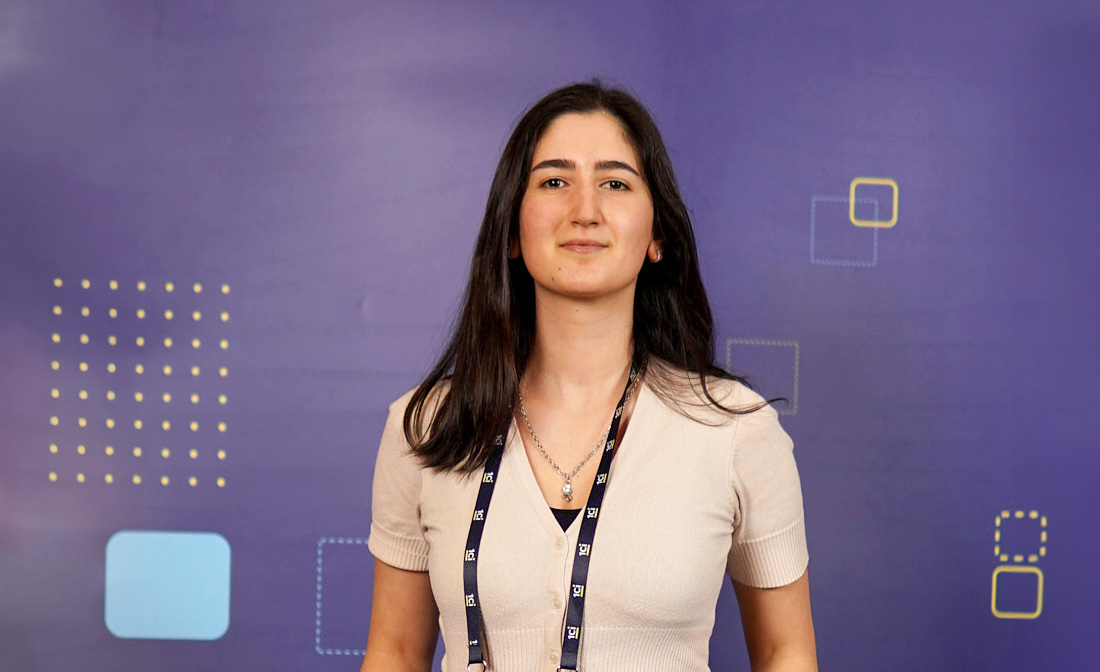Even though the world of tech is fast and thrilling, there's one area where it's still lagging — it doesn't have enough women. Although steps have been made toward gender equality, the IT world is still male-dominated.
However, there are women who are pushing through these barriers. Today, we're going to hear from one of these brave female specialists, Hazal ÖZGAN, a business analyst at DND Yazilim in Turkiye. Get ready to be inspired!
Thank you for joining us today, Hazal. Our readers would love to know what drove you to this area of work in the IT sector. Did it start with your academic pursuits or something else?
My journey into IT began after I completed my degree in Management. This field covers a wide range of areas such as business, accounting, and finance. After my graduation in 2020, I was looking for a field in which I could apply these skills and knowledge. Eventually, my search led me to discover the enticing world of the ERP and IT sectors because I realized they encompassed all these disciplines and were integral to the functioning of any business.
The technical aspects were particularly intriguing to me, I wanted to stay updated with the latest technology and enhance my abilities continuously. Later, I realized that the IT industry offers the opportunity for constant learning and improvement.
As someone who is slightly familiar with business analytics, my understanding of your role might be a bit simplistic. To me, a business analyst acts as a bridge between developers, project teams, and clients, with the ability to identify areas for improvement. Am I correct?
Yes, you are. It's vital for a business analyst to have strong communication skills to facilitate smooth interaction with diverse clients, who may not always clearly express their needs. It's about understanding their business processes and offering tailored solutions to their pain points. As I gained experience, I found this aspect to be more intuitive.
That’s insightful. Can you share what fuels your drive in your role?
There came a time when I realized how thrilling problem-solving could be. When I streamline business processes and offer solutions that simplify workflows for clients, I feel accomplished. This aspect is a crucial part of why I find such joy in my role as a business analyst. Working on a project, interacting with people, and knowing what our systems can do is pretty amazing. I feel a sense of empowerment from being able to affect positive change in our clients’ businesses.
That’s definitely empowering. Can you tell us about what you value most in your role? Is it fostering relationships, earning respect from clients, or the potential for growth and involvement in complex projects?
That's a tough one. Each aspect you've mentioned holds importance for me. However, if I had to pinpoint one thing, it would be the opportunity for growth and learning. I'm passionate about staying updated with new technologies, and I hope to become a part of larger, international projects in the nearest future.
Let’s talk about how you started your journey with DND, your initial responsibilities, and how you navigated your first project. I believe that kind of information will inspire other women by showcasing that it’s not scary and quite feasible.
My career in DND started with a recommendation from my uncle who works in the ERP sector. My first project involved analyzing user needs in the field of accounting and communicating them in English to the development team.
In retrospect, English played a crucial role in my initial success, and I often stress its importance to younger professionals looking to enter this field. Communication, whether in Turkish or English, is the key to effective problem-solving.
If you could give one piece of advice, what would you suggest to other women considering venturing into the business analyst profession?
My advice would be to pursue a field they feel genuinely curious about. If you enjoy what you do, success will inevitably follow. It's essential to identify a specialization you love, as this makes the journey less stressful and more rewarding.
There are some key skills to master. These are effective communication, problem-solving, proficiency in English, and good organizational skills. Lastly, some technical knowledge could prove helpful, as it gives a better understanding of coding and development processes.
